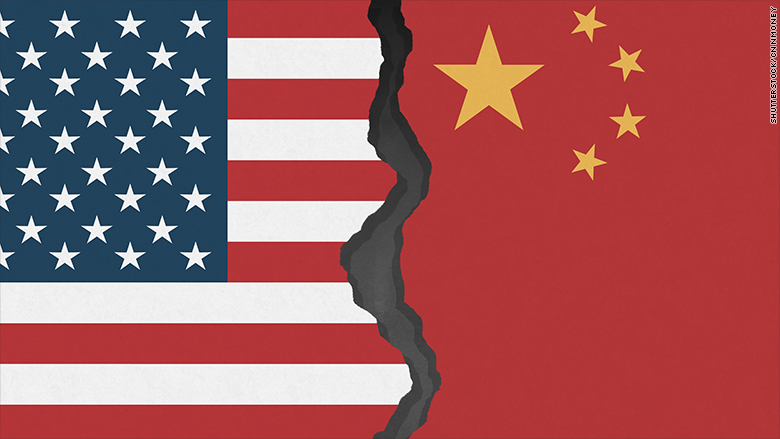"China is a sleeping lion, and when she awakes, the world will shake" - Napoleon
In the wake of Globalisation, the world has witnessed liberalization of trade and its practices. With that, there persists a competition amongst nations to lead. Countries have fought wars over the past century to imply the superiority of their fundamental thinking over the other in the name of national security.
The differences of the East and the West, over a year now, have lead to a 'Trade War'. On May 10, 2019, President of the United States, the populist leader, Donald Trump declared the hike in tariff rates from 10% to 25% on US$200 billionn worth of Chinese goods. The Chinese Ministry of Commerce responded in a statement that it "deeply regrets" the tariffs and that "necessary countermeasures" will be taken.
Beijing heard the tolling bell of this war on July 6, 2018 when the US announced China-specific tariffs at 25% on 818 items valued at US$34 billion, which included iron or steel products, electrical machinery, railway products, instruments and apparatus. The Chinese retaliated by imposing 25% tariffs on 545 US goods worth US$34 billion including agricultural products, automobiles and aquatic products.
After the Cold War, this was another instance when two superpowers of the world were colliding with each other in such manner. The effects of the increase in tariff rates were seen in the stock markets across the world. The Dow Jones Index dipped by 2.38%, the BSE Sensex took a beating of 362.92 points. China's Shanghai Composite slumped over 5.4%, followed by Hong Kong's Hang Seng 3.84%, Singapore's STI 3.52%, Taiwan's TWSE 1.83% and Korea's Kospi 0.9%.
The recent hike in tariffs was a result of inconclusiveness in the 11th round of negotiations. Trump has reportedly said that the tariff rates were increased as a measure of National Security. The Trump administration opposes the Chinese practices of business and considers it unfair. It has claimed that- the Chinese Government allows companies to enter their country in form of a 'Joint Venture' with a local company and in return they steal their technology and intellectual property.
The aforementioned claim lead the Trump Administration to investigate Chinese Government's acts, policies and practices related to technology transfer, intellectual property and innovation under section 301 of the Trade Act,1974.
China over the years has been dealing with hostile sense of dominance from the West. This lead the country to opt for the aggressive military rule after independence and abomination in the judgement, the West has perceived of them. China, thus reprises in form of upholding an image of itself as a state that can no longer be condescended.
The decision has hurt massive number of American businesses. Tariffs are taxes which the consumers pay and with a hike in tariffs, commodities will be expensive to buy. The businesses and consumers suffer over diplomatic disagreements on both the sides with the increasing economic slowdown.
In India, midst the 17th Lok Sabha election, the trade war emerged as a cause of heavy loss for investors. The Sensex slumped rapidly by 363 points. However, in the long run, India will benefit from the trade war.
India has greater opportunities in exporting electronics and machinery to The US and agricultural and clothing products to China. India's exports to the US went up by 11.2% in 2018, while to China it rose 31.4 % in the same year. India is capable of large scale operations and sufficing the needs of exports. Investors now seek relocation to India which are concerned with investments in China in relation to The US and vice versa. The Chinese and American markets will be more open to accommodate Indian goods.
Experts quote this opportunity as 'God-sent' for the Indian economy.
Together, America and China account for 40% of the World's GDP. Any event of disrupt between these countries will affect the global economy. It will lead to a global economic slowdown. If the trade war continues, there is a higher risk of recession in 2020. The economic output of China and US will reduce by 0.8% and 0.3% respectively. If the fear instigates in the minds of the investors, money will almost flow in the US Dollar. This in turn could bring down the value of currencies of countries like India, Brazil,Turkey.
This trade war is going to be long and painful. Where global environmental issues like Climate Change and Monitoring of Carbon emissions still lay aside, the economies of the world face a turmoil in the name of nationalist anger and propaganda used by the leaders inviting the masses to join them for a war of Supremacy in the World.







